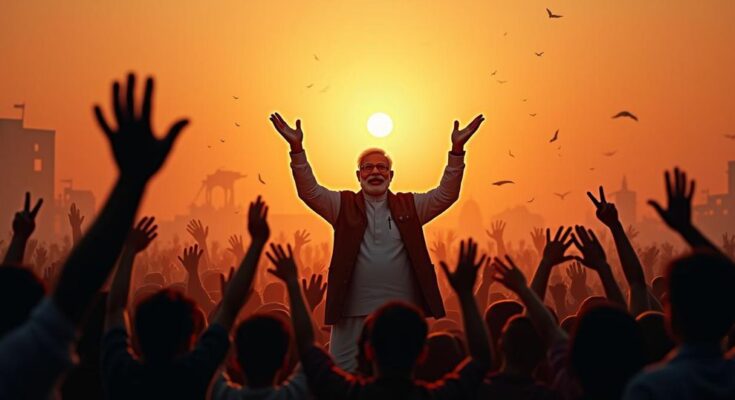Recent elections in India have produced mixed results for Prime Minister Narendra Modi. The B.J.P. successfully retained its position in Haryana against expectations, while facing significant setbacks in Jammu and Kashmir, where Congress emerged victorious. These outcomes reflect a potential shift in political dynamics, emphasizing local issues over national narratives.
India’s recent political landscape showcased a paradox of results following the elections in Haryana and Jammu and Kashmir, marking Prime Minister Narendra Modi’s first electoral challenge since his party’s national setback this summer. The Bharatiya Janata Party (B.J.P.), which Mr. Modi leads, displayed unexpected strength in Haryana, defying forecasts that favored the opposition Congress Party. While Congress leaders were eager to claim their anticipated victories, the B.J.P. managed to retain its dominance in the state, emphasizing the unpredictability of public sentiment and the limitations of polling forecasts. Conversely, in the historically tumultuous region of Jammu and Kashmir, the B.J.P.’s ambitions faced significant resistance. Here, Congress and its allies emerged with a decisive victory, undermining Mr. Modi’s efforts to establish the B.J.P.’s prominence in the region. These results indicated a broader trend in Indian politics, where local issues significantly influence electoral outcomes, perhaps signaling a return to the pre-Modi political dynamics characterized by complex coalition-building. In prior electoral contests, Mr. Modi’s influence stemmed from his constructed image as a champion of a global Hindu identity and broad national appeal. However, the recent losses in the national parliamentary elections have fundamentally altered this perception. Despite being the largest party capable of forming a coalition government, the B.J.P.’s lack of a parliamentary majority has diminished Mr. Modi’s perceived invincibility.
The political developments in India reflect a pivotal moment for Prime Minister Narendra Modi, particularly in light of his party’s unexpected loss of its parliamentary majority during the national elections earlier this summer. The elections in Haryana and Jammu and Kashmir serve as critical indicators of regional political sentiments and underscore the complexities of India’s electoral dynamics. States in India wield substantial influence, with large populations and powerful local leaders, making their elections significant both regionally and nationally. The recent results highlight the shift in voter priorities, suggesting a movement towards localized issues rather than national narratives, thereby changing the political calculus for major parties, including Mr. Modi’s B.J.P.
The outcomes of the elections in Haryana and Jammu and Kashmir have reignited discussions about the state of Indian politics and the evolving influence of Prime Minister Modi. While the B.J.P.’s stronghold in Haryana offers a moment of solace for Mr. Modi following national electoral setbacks, the significant losses in Jammu and Kashmir raise questions about the party’s strategy moving forward. The evident re-emphasis on local issues signifies a transition in voter behavior that may require traditional political coalitions and adaptability from major parties as they navigate the complexities of India’s diverse political landscape.
Original Source: www.nytimes.com




